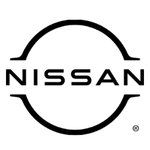The AI Job Market: The Rise of AI Coworking Companions

AI working companions have been popping up at an exponential rate following the commercialization and increasingly widespread use of AI models. From day-to-day tasks to research, AI systems have been expediting processes that usually take tenfold the amount of time when put solely in human hands. In a sense, the rapid uptake of such systems has created an independent AI job market, with AI copilots as the new employees.
One of the areas that AI has been extremely useful is in coding. The process of debugging, fixing, and even creating boilerplate code takes up the precious time of developers whose intellect would be better applied solving more significant problems in the world of technology. IBM’s new patent filings for their coding companion show a significant step forward in the journey of creating AI coding assistants. IBM's coding companion patent adds to the sea of AI-based developer tools, showcasing a sophisticated system designed to assist developers in writing, debugging, and optimizing code. This tool aims to streamline the coding process, allowing developers to focus on more complex and innovative tasks, thereby enhancing overall productivity and innovation within the tech industry.
Additionally, AI has proved useful in helping humans who are in non-coding related roles and are working with other materials that are just as tedious to sort through. For instance, the startup Medal recently raised $13 million to build out a new AI platform for desktop use, which assists users in organizing and managing vast amounts of information efficiently. This platform is designed to automate the sorting and prioritizing of data, enabling professionals to concentrate on more strategic and creative aspects of their work.
However, while these uses are trajectory-shaping aspirations for the use of AI, the reality is that most of these models have a long way to go. Coding assistance on ChatGPT at the moment is at best sparse—most of the code that the model can provide is barebones, bug-filled, and requires significant human effort and interpretation to make usable. Sometimes, even more work is needed if a human were to write the code themselves. This highlights a significant challenge in the deployment of AI copilots: the need for substantial human oversight and intervention. The Wall Street Journal reports that AI work assistants often need a lot of handholding, and while they can perform basic tasks, their limitations mean that humans still need to invest considerable effort in refining and correcting the AI-generated outputs.
Despite these challenges, AI has many uses at the moment that can enhance the efficiency of workers. One of these areas is in the world of patents—whitespace searching, patent drafting, and claim analysis takes up the time that IP lawyers could spend on more effective drafting and analysis were they provided with condensed facts and analyses upfront. Additionally, companies face operational inefficiencies when they spend time developing products only to realize they are liable to be sued for infringement, or whose IP is infringed upon without proper detection and litigation measures.
Patlytics.ai seeks to solve this problem. AI-powered patent drafting and management tools such as Patlytics.ai enable companies to take an essential step in developing their offerings and increasing the efficiency of law firms in the work that they do. By combining AI and intellectual property, Patlytics.ai increases the efficiency of intellectual property management for companies and law firms alike. By preventing intellectual property infringement and properly classifying intellectual property, Patlytics.ai represents a new standard for the use and capabilities of AI-powered copilot tools.
In conclusion, while the current state of AI work companions shows great promise, there are still significant hurdles to overcome. The advancements in AI coding assistants by IBM and organizational tools by Medal are steps in the right direction, demonstrating the potential of AI to revolutionize various industries. However, the need for human oversight and the limitations of current AI models underscore the importance of continued development and refinement. With tools like Patlytics.ai leading the way in specialized fields such as patent management, the future of AI work companions looks promising, provided that the challenges are addressed and the technology continues to evolve.
Reduce cycle times. Increase margins. Deliver winning IP outcomes.
The Premier AI-Powered
Patent Platform










.png)




























.png)




























.png)




























.png)

















